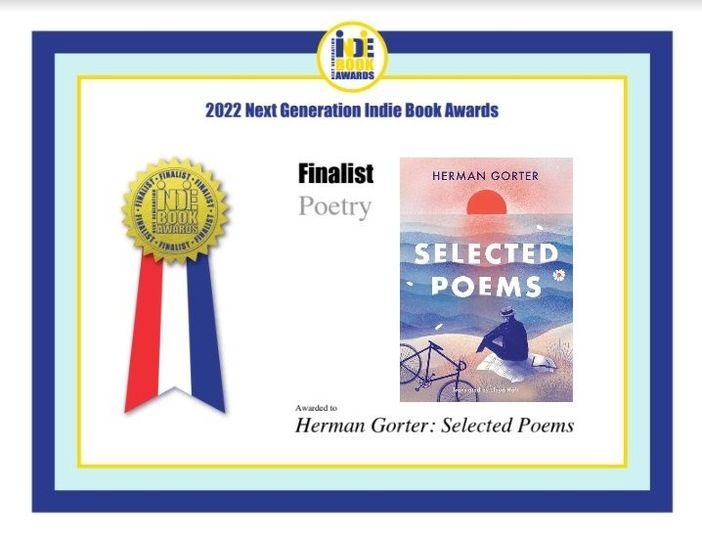Impressions of Herman Gorter: Selected Poems
Herman Gorter: Selected Poems
When times were leaf-still, long gone by,born she was, in autumn hush a bloomin bleak lightweepings standing pale light –the clouds cloak her in rains.Pale she stood her light amidst all drear,keeping light eyes, blonde hair spreading near her,tears at many an hour, white of hands –a poor light girl light-famished.Bring upon her color of bloomglow,your blood-red, o new season that is now.
From Herman Gorter: Selected Poems. Translated by Lloyd Haft, 2021.
Photo: M. Kruijff
It is not true that this is sunlight.This is you.This is not the wind that bluesacross the water:that is not so gentle:this is you.This is not the earth and not the heavens –so beautiful they’re not.This is you.
From Herman Gorter: Selected Poems. Translated by Lloyd Haft, 2021.
Photo: M. Kruijff
Deep goes the radiance of night and of light, translating All into feeling – see the way she lies in bliss, facing above, from eyes to soles receiving me, as after endless byways I plunge into my goal of Light.
From Herman Gorter: Selected Poems. Translated by Lloyd Haft, 2021.
Photo: edited from A. Tugolukov
Foreword to Herman Gorter: Selected Poems
Photo: Coen Peppelenbos
The Netherlands has not done a
good job of preserving its literary heritage: poets from bygone eras tend to
drift quickly into oblivion. But Herman Gorter (1864-1927) is a prominent
exception; some of his works are still widely read and admired. Aside from the
epic May (1889), it is especially his lyric verse – a genre that he
continued to pursue throughout his stormy life – that is popular. Less well
known, for no good reason, is the impressive epic Pan (two versions,
1912 and 1916), which sings the heroic struggle of the labor movement.
Gorter, a
specialist in classical languages who wrote his Ph.D. thesis on the metaphors
of Aeschylus, is renowned for his sensual language and subtle rhythmic effects.
Since Gorter distorts the Dutch language and adjusts it to what he wants to
say, sometimes using words that can’t be found in any dictionary, translating
his poetry demands the utmost from the translator.
May
has been translated into German, French, Frisian, Russian, and (recently)
English, but a really extensive translation of his other works into a world
language did not yet exist.
The sinologist and poet Lloyd Haft (1946), whose earlier work includes a rewriting of the Psalms (2003), has had the courage to translate a wide selection of Gorter’s work into English. In Haft’s version, Gorter sounds the way he should sound: musical and sensitive, at times groping, at other times jubilant, always sure of himself and amazing. No other Dutch poet’s work is as exciting as Gorter’s, so much so that you sometimes downright fall in love with it. For readers of English it will be a feast to be able to make his acquaintance via this translation.
Piet Gerbrandy
Herman Gorter: Selected Poems is available worldwide:








Comments
Post a Comment